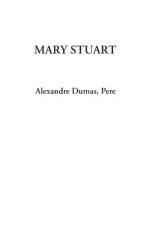As we have said, Mary had arrived in the midst of all the heat of the first religious wars. A zealous Catholic, like all her family on the maternal side, she inspired the Huguenots with the gravest fears: besides, a rumour had got about that Mary, instead of landing at Leith, as she had been obliged by the fog, was to land at Aberdeen. There, it was said, she would have found the Earl of Huntly, one of the peers who had remained loyal to the Catholic faith, and who, next to the family of Hamilton, was, the nearest and most powerful ally of the royal house. Seconded by him and by twenty thousand soldiers from the north, she would then have marched upon Edinburgh, and have re-established the Catholic faith throughout Scotland. Events were not slow to prove that this accusation was false.
As we have stated, Mary was much attached to the Prior of St. Andrews, a son of James V and of a noble descendant of the Earls of Mar, who had been very handsome in her youth, and who, in spite of the well-known love for her of James V, and the child who had resulted, had none the less wedded Lord Douglas of Lochleven, by whom she had had two other sons, the elder named William and the younger George, who were thus half-brothers of the regent. Now, scarcely had she reascended the throne than Mary had restored to the Prior of St. Andrews the title of Earl of Mar, that of his maternal ancestors, and as that of the Earl of Murray had lapsed since the death of the famous Thomas Randolph, Mary, in her sisterly friendship for James Stuart, hastened to add, this title to those which she had already bestowed upon him.
But here difficulties and complications arose; for the new Earl of Murray, with his character, was not a man to content himself with a barren title, while the estates which were crown property since the extinction of the male branch of the old earls, had been gradually encroached upon by powerful neighbours, among whom was the famous Earl of Huntly, whom we have already mentioned: the result was that, as the queen judged that in this quarter her orders would probably encounter opposition, under pretext of visiting her possessions in the north, she placed herself at the head of a small army, commanded by her brother, the Earl of Mar and Murray.
The Earl of Huntly was the less duped by the apparent pretext of this expedition, in that his son, John Cordon, for some abuse of his powers, had just been condemned to a temporary imprisonment. He, notwithstanding, made every possible submission to the queen, sending messengers in advance to invite-her to rest in his castle; and following up the messengers in person, to renew his invitation viva voce. Unfortunately, at the very moment when he was about to join the queen, the governor of Inverness, who was entirely devoted to him, was refusing to allow Mary to enter this castle, which was a royal one. It is true that Murray, aware that it does not do to hesitate in the face of such rebellions, had already had him executed for high treason.




